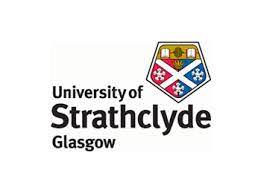University of Strathclyde: New Project Aims to Mitigate Impact of Future Epidemics on Vulnerable Populations
A new project is developing solutions to lessen the negative impacts of future epidemics on the most vulnerable by creating a network of existing experts and policy makers.
Recent decades have seen infectious disease epidemics and pandemics such as COVID-19, HIV, and Zika, with potential epidemics looming on the horizon – particularly Mpox and Avian influenza.
Complex interactions
These epidemics stem from the complex interactions within ecosystems between people, microbes and other animals. Each brings negative impacts, but typically, they make things worse for those who are already vulnerable.
The Mobilising Scotland’s Assets in equitable ways for Epidemic Control (MOSAEC) is building a cross-disciplinary network of those who have worked – separately – on flu, Covid, monkey pox, foot and mouth and other diseases that affect humans and animals. The aim is to help shape the future of epidemic control and develop solutions to inequalities in epidemics.
Led by the University of Strathclyde, the network offers a unique opportunity to pull together organisations, communities and diverse academic disciplines to identify impactful research ideas and genuinely new solutions.
Reduce inequality
The project is one of 12 to be funded by UK Research and Innovation (UKRI) as part of its work to tackle infections, and co-lead, Psychology Professor Paul Flowers, said: “The aim is to help us learn from past epidemics and plan for the future, whilst also reducing inequality.
“Previously there has been a collective failure to address inequalities from the outset. For example, that COVID would affect some ethnic communities more than others, and that those with the lowest income would be affected worst of all.
“We need the public, affected communities, the NHS and social care, national and international governments to work together and come up with new approaches and solutions.
“Different academic disciplines need to share their expertise and insights to deliver new ways of thinking to help shape future responses to coming epidemics.”
The focus will take in recent epidemics and their impacts, and how government, public health and social care respond to epidemics.
Organisations already involved include Glasgow School of Art, Scotland’s Rural College (SRUC), the University of Edinburgh, MRC-University of Glasgow Centre for Virus Research, the Poverty Alliance and the Scottish Government.
Control epidemics
Co-lead Ruaridh Clark from Electronic and Electrical Engineering, said.
It is inevitable that we will face new waves of infections. We hope that this project will shape future research agendas and that inequalities will be placed at the centre of any changes we make in how to control epidemics.
Tackling infections is one of five strategic themes in UKRI’s five-year plan, Transforming Tomorrow Together. It aims to harness the full power of the UK’s research and innovation system to tackle large-scale, complex challenges, encouraging working across sectors, ‘bottom up’ solutions and building on existing investment and activity.

